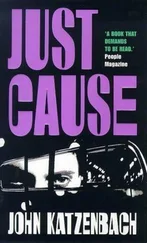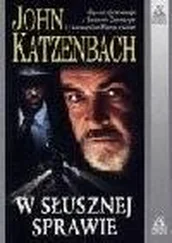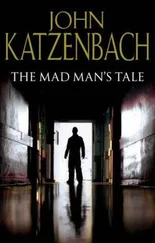There was another, secondary effect: It created a situation where people who thought they knew Ricky, now would wonder what they knew and how they knew it. It was a wondrous lie, he thought, because the mere fact that he denied it would make people in his profession think he was covering up.
I am all alone, Ricky thought. Isolated. Adrift.
Ricky inhaled sharply, as if the air in his office had grown cold. He realized that was what he wanted. Alone.
Again he looked at the two letters. In the fake complaint the anonymous writer had included the names of a Manhattan lawyer and a Boston therapist.
Ricky couldn’t help himself from shuddering. Those names were installed for me. That’s the route I’m supposed to travel.
He thought of the frightening darkness in his office the night before. All he had to do was follow the simple path and plug in what had been disconnected to shed light into the room. He suspected this was more or less the same. He just didn’t know where this particular path might be leading him.
He wasted the remainder of that day examining every detail of Rumplestiltskin’s first letter, trying to dissect the rhymed clue further, then taking the time to write precise notes about all that had happened to him, paying as much attention as he could to each word spoken, re-creating dialogue like a reporter readying a news story, seeking a perspective that eluded him easily. He found he had the most trouble remembering exactly what the woman Virgil had said, which was disconcerting. He had no difficulty recalling the shape of her figure or the slyness in her voice, but found that her beauty was like a protective covering over her words. This troubled him, because it went against his training and his habit, and, like any good analyst, he pondered why he was so incapable of focus, when the truth was so obvious that any routinely charged teenage boy could have told him.
He was accumulating notes and observations, seeking refuge in the world he was comfortable within. But, the following morning, after he had dressed in a suit and tie, and then had taken the time to draw an X through another day in the calendar, he once again started to feel the pressure of time weighing on the situation. He thought that it was important for him to at least come up with his first question, and call the Times to place the question in an ad.
The morning heat seemed to mock him, and he steamed inside his suit almost immediately. He assumed he was being followed, but once again refused to turn and look. He realized he wouldn’t know how to spot a person tailing him, anyway. In the movies, he thought, it was always so easy for the hero to detect the forces of evil arrayed against him. The bad guys wore the black hats and the furtive look in their eyes. In real life, he recognized, it is far different. Everyone is suspicious. Everyone is preoccupied. The man on the corner delivering items to a grocery deli, the businessman pacing rapidly down the sidewalk, the homeless man in the alcove, the faces behind the glass windows of the restaurant, or a passing car. Anyone could be watching him or not. It was impossible for him to tell. He was so accustomed to the hyperintense world of ’s office, where the roles were so much clearer. Out on the street, it was impossible for him to tell who might be playing the game and watching him, and who was just one of the other eight million or so beings who abruptly populated his world.
Ricky shrugged and hailed a cab at the corner. The cabbie had an unpronounceable foreign name, and was listening to an odd, Middle Eastern music station. A woman vocalist was keening in a high-pitched voice that wavered as the tempo changed. When a new tune came on, only the pace changed, the warbling vocals seemed to be the same. He couldn’t make out any recognizable words, but the driver was tapping his fingers against the steering wheel in rhythmic appreciation. The cabbie grunted when Ricky gave him the address, and sped off into traffic rapidly. Ricky wondered for a moment how many people jumped into the man’s cab every day. There was no way for the man behind the plastic partition to tell whether he was carrying fares to some momentous event in their life, or merely another passing minute. The cabbie punched his horn once or twice at an intersection, and drove him through the congested streets without comment.
A large white moving van blocked most of the side street where the lawyer’s office was located, leaving just enough space for cars to squeeze past. Three or four burly men were moving in and out of the front doors of the modest, nondescript office building, carrying brown cardboard boxes and the occasional piece of furniture, desk chairs, sofas, and the like and walking carefully up a steel ramp into the truck to load them. A man in a blue blazer with a security badge stood to the side, keeping watch on the progress the movers made, eyeing passersby with a wariness that spoke loudly of a man with a single purpose for his presence and a rigidity that would see that purpose met. Ricky exited the cab, which sped off as soon as he slammed the door, and approached the man in the blazer.
“I’m looking for the office of a Mr. Merlin. He’s an attorney…”
“Sixth floor, all the way to the top,” the blazer man said, without taking his eyes off the parade of movers. “You got an appointment? Pretty busy up there with the move and all.”
“He’s moving?”
The blazer man gestured. “What you see,” he said. “Breaking into the big time, big money, from what I hear. You can go on up, but don’t get in the way.”
The elevator hummed, but thankfully no Muzak played. When the doors opened on the sixth floor, Ricky immediately saw the lawyer’s office. A door was propped open and two men were struggling with a desk, lifting and angling it through the doorway, as a middle-aged woman in jeans, running shoes, and designer T-shirt watched them carefully. “That’s my desk, goddamn it, and I know every stain and scratch on it. You put a new one there, and you’ll be buying me another one.”
The two movers paused, scowling. The desk slid through the door with millimeters to spare. Ricky looked past the men and saw boxes piled in the interior corridor, empty bookcases, and tables, all the items one ordinarily associated with a busy office out of place and collected for the move. From within the office there was a thudding sound and some cursing. The woman in jeans threw back her head, shaking a wild mane of auburn hair with obvious irritation. She had the look of a woman who appreciated organization and the temporary chaos of the move was almost painful for her. Ricky walked up quickly.
“I’m looking for Mr. Merlin,” he said. “Is he around?”
The woman turned quickly. “Are you a client? We don’t have any appointments scheduled for today. Moving day.”
“In a manner of speaking,” Ricky replied.
“Well,” the woman said stiffly, “what manner of speaking would that be?”
“My name is Doctor Frederick Starks, and I believe it safe to say that Mr. Merlin and I have something to discuss. Is he here?”
The woman briefly looked surprised, then smiled unpleasantly, nodding her head. “That’s a name I recognize. But I don’t believe Mr. Merlin was expecting a visit quite so quickly.”
“Really?” Ricky said. “I would have guessed the exact opposite is the case.”
The woman paused as another mover emerged carrying a lamp in one hand and a box of books under another arm. She turned to him and said, “One trip, one item. Carry too much, something just gets broken. Put one of those down and come back for it next time.”
The mover looked astonished, shrugged, and put the lamp down none too gently.
She turned back to Ricky. “As you can see, doctor, you’ve arrived at a difficult moment…”
Читать дальше












